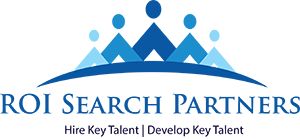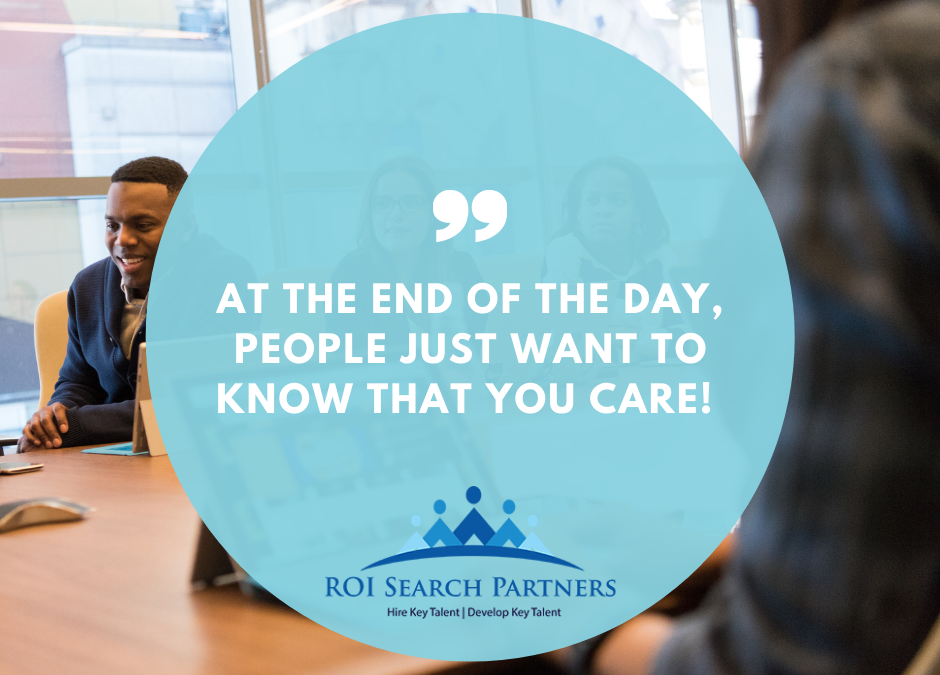Recently we had an opportunity to meet with a group of HR leaders in person for the first time in over two years! It was refreshing to interact face-to-face to discuss successes and challenges as we navigate this new workplace environment.
As always, we had lively conversation that was hard to stop. We look forward to continuing the discussions as a group throughout the year, and also 1:1 as relationships form between leaders across our region. What made this session even more special is that many of us stayed after the meeting to volunteer at the St. Louis Area Food Bank, packaging 160 cases of dry goods representing 3,200 lbs. for the food insecure in our community! Here is a summary of what was shared during the roundtable:
Vaccination Practices
Still top of mind during the discussion were vaccines: mandates, barriers to recruitment, and balancing team member, candidate and business expectations.
Some of our group members have a vaccine mandate due to the nature of their work. Others are in an “in-between” state where they are transitioning to removing the vaccine mandate for all except for where necessary within CDC guidelines. The vaccine mandate has posed a challenge for some organizations as a barrier to recruiting talent, limiting their applicant pool even more, and they are looking to build a business case to justify changes as the cost of vacancies is ever increasing.
Remote and Flexible Work Practices
Other pressures that leaders are facing are the conflicting viewpoints around remote and flexible work practices. From a team member standpoint, one HR leader shared that seasoned team members are embracing work from home, but newer team members want the in-person experience.
Another manufacturing company shared an interesting experience in that the remote/flexible work conversation really highlighted which leaders are in the right roles – those leaders who rose to the occasion to respond to the crisis/change that was necessary to adapt to new conditions and expectations. In an environment where remote work or even new/different staffing models never previously seemed like an option, they were forced to have an open mind and have adopted new ways of working without sacrificing productivity. Some have embraced a part-time workforce in response to needs of candidates, and this has been very successful in supplementing their labor shortage. They are also working with those managers who were against working from home or flexible work to understand if it’s a trust issue, productivity concern or just the inability or unwillingness to change.
Remote Onboarding Practices
Many of our HR leaders shared that onboarding remotely continues to be a challenge. However, they are getting creative and being very intentional in their high touch approach to offer a similar feel for new team members through video introductions, swag boxes, and personal cards and notes from team members.
They are hearing that newer team members really want to meet people. Many new team members want the in-person interaction, so leaders are doing everything they can to stay connected and check in with these new team members to ensure they are able to build the relationships they need to succeed. It’s not just the tools and resources that new hires need – they also need people to support them!
Demand for Talent + Burnout
Not surprisingly, the conversation turned to the increasing demand for talent and burnout of current team members, especially top performers. Several HR leaders recently started with new companies during the “Great Resignation” in search of better alignment with personal values and better work/life balance.
Some of our leaders shared that their organizations are considering implementing a sabbatical policy to help team members pursue passions and prevent burnout. Others are considering unlimited vacation policies, company-wide mental health days, and more.
But not all of the ideas and suggestions around burnout and retention cost money! Some of our participants shared how they are showing greater appreciation for their team members, really incorporating it into their daily work. They are challenging leaders to get out and about to see their teams in the field. Some are implementing random acts of kindness notes, surprise rewards such as movie tickets or a half-day off, etc. They are also celebrating and connecting with their teams more – being intentional about sharing information around the business, asking for ideas and also highlighting wins.
Culture as the Differentiator
“At the end of the day, people just want to know that you care.” This statement was shared by one of our HR leaders and we totally agree! Leaders were sharing how they are focusing on getting to know their team members more as people first, and finding out what the “wow” is for that person. This human focused leadership is definitely a differentiator as it helps team members to better connect to their leader, the purpose of the organization, thereby creating loyalty.
Relationships are what makes organizations work! One HR leader shared that when two departments are challenged with a decision and trying to work better together, they send them off site to do a social activity. They get to know each other as people – and guess what, they are able to more collaboratively and creatively problem solve when they return
to the office.
As always, we enjoy and appreciate the willingness of leaders in our community to come together and support one another with ideas, “me toos” and even the courage to say “I don’t know!!” We look forward to the opportunity to continue these conversations and watch the relationships grow between members of this community.


Recent Comments